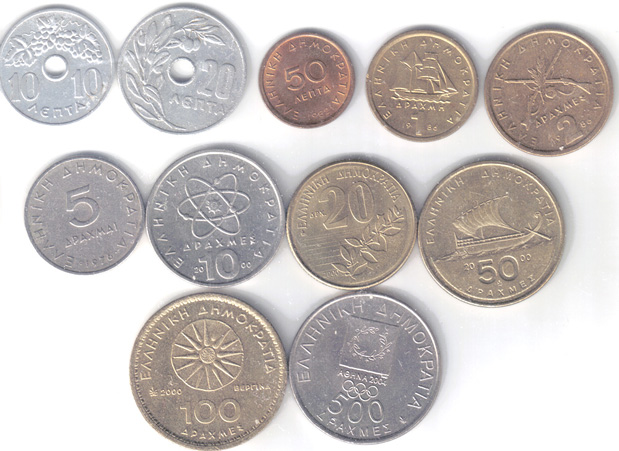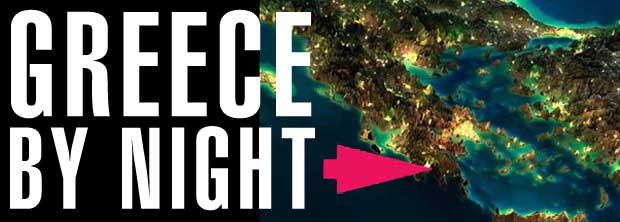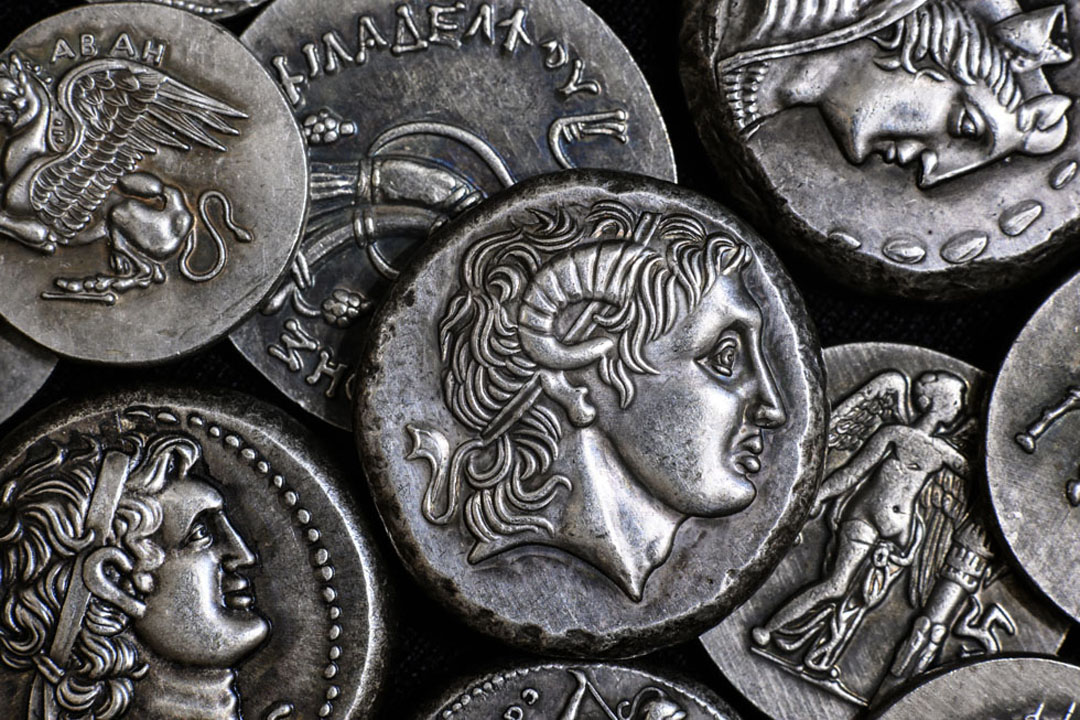€uro, US Dollar (and the Drachma) in Greece
δραχμή
Last updated July 13, 2022
The drachma is the currency used in Ancient Greece and in the modern era, up to the official changeover to the Euro on January 1, 2002, though Euros were circulating in Greece in 2001.
The Drachma was used in the Archaic period throughout the Classical, into the Hellenistic era and then the Roman period.
The first modern Drachma was minted in 1832 by King Otto.
€uro to US Dollar converter tool - wise.com
July 2022
What you should know about US Dollar to Euro in Greece, 2022 – MSN News
Older News Items:
Estimated 500 million drachmas still being held
Story at Imerisia [Greek] December 27, 2021
Remember when Greece had a one-hundred-billion Drachma bank note?
November 1944 – story at Greek City Times [English] Dec 28, 2021
SYRIZA currency plan meant printing drachma in Russia
Story at SKAI [Greek] October 15, 2019
Lafazanis: We would have printed drachmas in 2015
Story at Liberal GR July 5, 2018
March 10, 2017
Greece looks to become top tourism destination in the world - Neoskosmos
"When asked if he thought the number of tourists would increase if Greece were to leave the eurozone, he rejected the idea as disastrous for local inhabitants.
If Greece returns to the drachma we will have millions of tourists, but Greeks will be [living] in a ghetto, behind a wall that will separate them from the tourist areas, in the logic of the Caribbean. It would be an absolute disaster," he [SETE Andreas Andreadis] said."
More about Greek tourism
July 10, 2015
Five SYRIZA hardliners say prefer drachma to austerity
Story at ekathimerini
July 4, 2015
Fearing return to drachma, some Greeks use Bitcoin to dodge capital controls
Story at ekathimerini

May 20, 2013
Plan B to take Greece to drachma - Enet English
"Plan B, as the party is called, is the brainchild of Alekos Alavanos, the former leader of Syriza. "Greece is a now a country with no achievement. It’s a society that has lost its self-confidence and its perspective for the future," Alavanos told EnetEnglish. "We cannot wait one day," he said, "Because Greece is dying. There is a generation of people who have never known work. Young people are starting to forget what they studied." Unemployment for the 18-24 age group now stands at 64 percent.
Alavanos believes that Greece can only rebound under a devalued currency, because the euro is making Greek products and services expensive to overseas buyers and to other Greeks. "There is not even one example in the last century of a developed country like Greece that has been in a recession, in a depression, to find its way out with a hard currency. Now we have as our own currency the currency of the Germans," he says.
...Alavanos led Synaspismos, the main party in Syriza, and paved the way for his nephew, Syriza's current leader, Alexis Tsipras, to rise to the top. But the two had a falling out in 2010 over whose protege would carry the nomination for Athens prefect in the local elections, and Alavanos lost out. He now believes that Syriza has left voters without any real alternative to austerity by compromising too far with the troika... "
The Drachma
Plan B - return to Drachma with Alekos Alavanos - May 2013
Talk of default / Drachma rebirth heats back up - March 7, 2011
Rumors of Drachma return grow - Nov 2, 2011
Could the drachma save Greece? - June 6, 2010
Related:
2011 – Creating the European Financial Stability Facility (EFSF) & the "PIIGS"
2017 – Another Greek Economic Crisis?
The Drachma almost returned to Greece 2013–2017
Greek economic Survival in the 1990s
See also:



Greece's Golden Visa program

